4v291o
In some respects, Dead Reckoning is even more stylized and more impressively directed than Fallout. The first 30 minutes are perfection by Mssion: Impossible standards. Up to the opening credits, the film is a perfect combination of action, exposition, mystery, and macguffin hunting. Where it falters, however, is when it overstuffs the exposition and tries to make it as personal as possible for Ethan. The whole of idea of Ethan having a trolley problem over women he's smitten with feels contrived, especially when the stakes are already world-ending. Just let the spies try to save the world, and stop trying to push a women we just met and don't care for yet.
]]>
With obvious parallels to Indiana Jones and The Mummy, and less obvious parallels to Titanic and Mission: Impossible, the most surprising cinematic connection of Fountain of Youth is that it's apparently part of the Conclave cinematic universe.
After so many iterations, it's hard to make a treasure hunt through history feel fresh. Despite the odds, Guy Ritchie's direction keeps this clear derivation afloat for a good chunk of time--it helps that Ritchie is well experienced in the realm of action. The story marches forward with an energetic direction and with novel locales and clues. For a sizable portion of this runtime, Fountain of Youth seems to have the desire to forge its own path. Traveling from Bangkok to the wreck of the Lusitania and exploring Baroque paintings and the Wicked Bible, this film had just enough of a new face to tip the scales in its favor.
But in the end, it's weighty detriments take over. Most plainly, the hero is just boring. It's as if John Krasinsli brought Jim into an adventure flick. And that millennial attitude of wry sarcasm and detachment spreads to every character. For the apparent discovery of an omnipotent power source that's united humanity for centuries, no one seems particularly excited about it. Natalie Portman is doing her best to inject human feeling into this slog of an endeavor. Yet an action film is only as good as the charisma of its less, and Krasinski is no Harrison Ford or Tom Cruise.
By the time Fountain of Youth is trudging through the well trodden sands of the Egypt, and while faceless armies are facing off with each other that in no way affects the heroes, all identity has left this film. It's astounding why the writers decided to have the climax so closely mirror an Indiana Jones movie when all that prompts is viewers to ask why not watch one of those Spielberg movies instead? It's a bore, as we are forced to spend time with superfluous characters who are mercilessly left alive almost as if to taunt the audience with how much time we've wasted with them. Whatever efforts the filmmakers made in the beginning, it's as if they threw in the towel at this point because they already got the viewers for their rating rankings.
And just because the movie ends in a desert, that doesn't mean Oasis is an appropriate source for an ending song.
]]>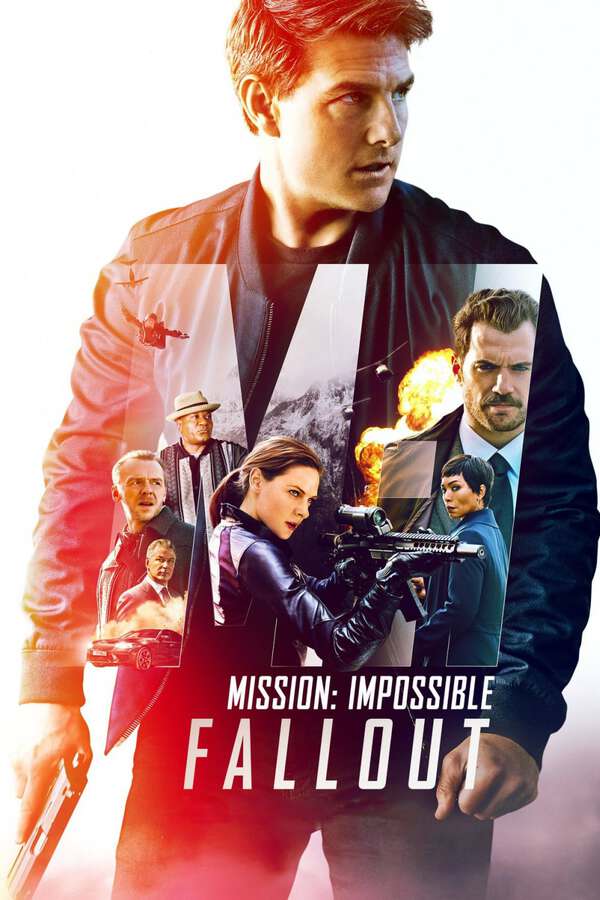
While Rogue Nation feels like it's trying to follow in the vein of Ghost Protocol, Fallout has Christopher McQuarrie find his own voice for one of the best action films in history. Dead Reckoning will follow suit of incorporating a focus on Ethan Hunt's backstory and relationships, stewing in intricate production design that emphasizes the mood with lighting, and using the moments of action to deliver comic relief.
What makes Fallout stand out from all the rest, though, is that no action sequence is taken for granted. Big and small, each one is memorable in its own way. Even a motorcycle chase through Paris, which has been done dozens of times before, is all the more exhilarating as it takes advantage of the city's unique layout--namely, a motorcycle chase around the Arc de Triomphe against the flow of traffic.
While not the finale of Mission: Impossible, Fallout will always seemine the pinnacle for its ability to not only be the best in the series but also to embrace so many of the past films' characters and storylines. Perhaps it's only fault is not definitively ending the series as it's impossible to up.
]]>
The opera scene is one of the best action set pieces in the Mission: Impossible franchise, and it's a sign to action movies everywhere that bigger is not always better. Carefully deg around a small-scale crescendo can pack an even bigger punch.
Rogue Nation really peters out in the third act, though. After the water hest, the story succumbs to issues of repetition (having another car & motorcycle chase through an Arab desert), characters acting without any rational foresight, a deus ex machina skill that saves the day, and a Scooby-Doo level resolution to the conflict. It's a shame because the premise of a rogue spy agency acting as a pound-for-pound rival to the IMF could have had really fun doppelganger moments for all these characters. But unfortunately, the whole concept goes nowhere.
]]>
What a lot of movie musicals miss is that even when it's not a big, splashy number, the visuals onscreen can still be compelling. Chicago gets this idea mostly right, as there are a quite a few musical moments that aren't as toe-tapping as the big band jazz pieces, but they are magnificent to look at. The glimmers of the silver dress in Roxie are unforgettable.
Whenever a story is adapted from one medium to another, there needs to be some artistic justification for why you're changing the format. In this case, why are you retelling a perfectly good stage musical? And every good retelling plays to the strengths of its new medium. For film, in particular, storytellers have the advantage of giant set peices, editing, camerawork, and close-ups of the actors' faces. Chicago takes each of these advantages in strides. The black-and-forth editing of All that Jazz, the shadows and light of Cellblock Tango, and the packed house of the Nowadays finale all make for some of the most memorable movie musical moments. A worthy Best Picture winner.
]]>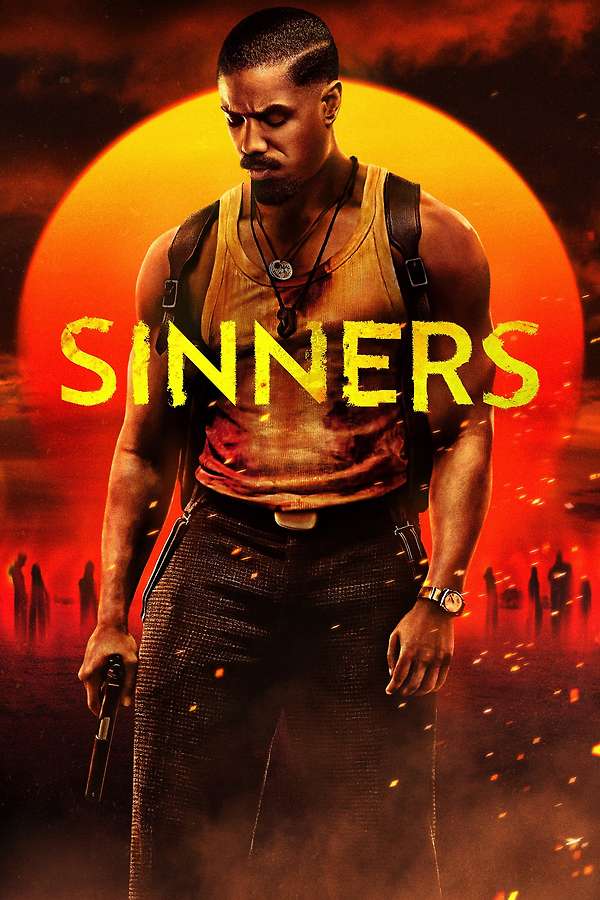
It kind of feels like Ryan Coogler wanted to make a blues musical historical drama with a Buddy Guy cameo set in Depression-era Jim Crow South about how music can unite people across space and time and also about how important it is to keep your culture and identity even in extremely repressive environments where the temptation of finding safety in conformity lurks everywhere.
But then the studio said "Yeah but can you add you add vampires so we can make money"?
Glad it's doing so well at the box office though. A lot of the actors and crafts have been getting shout-outs already, but I specifically want to highlight the editing which manages to hold this extremely genre-ecclectic story together and which creates some of the most suspenseful and electric moments of the film.
]]>
After watching Adolescence, I'm struck by how it's both timely and timeless. It's timeless because the concept of male rage has existed for as long as man has been on this earth, and that men learn aggression from their father is innately understandable for anyone who has been around young boys and their dads.
At the same time, with the proliferation of social media, Adolescence comes at a time when we're struggling to understand how the Internet is changing everything. Parents are left helpless as the world wide web can reach its tentacles into their children's rooms. It's as if their kids are in an entirely different world, speaking another language, and there's nothing the parents can do to protect them.
It's this tension between old and new that is palpable through each of these four episodes. Yes, young teen boys have always ogled women's bodies, but now one young girl's mistake can be the entertainment of her entire class. And even though there have always been bullies at school, it's never been where a bully could keep on harassing their victims outside of school through the public forum of Instagram.
It's a brave new world, and the sanctity of childhood is in danger. Much as adolescemce is a transition between childhood and adulthood, so too are we in our society's adolescemce. We have left our naive, safe world behind, as we are entering an unknown frontier with new rules, social dynamics, and dangers.
Here, in this series, the one continuous shot technique is effective at showing the indefatigable march of time. We sit helplessly as the seconds and minutes tick by, and even as the end appears inevitable, there's nothing we can do to escape it or even speed it up. It's these moments where we must sit in real time with the characters' reactions and emotions that this series hits hardest.
A Shakespearean tragedy to its fullest, Adolescemce doesn't promise a happy ending or even resolution. Instead, we're stuck in the world, and we must deal with the trials and tribulations as they come, minute by minute, day by day, and even years into our lives.
]]>
Every movie needs to be like this
]]>
At its outset, I’m Still Here is strategically pedestrian. The moments are unassuming. There are, of course, quick flashes of danger, but the mood never suggests that a looming darkness. It focuses on the present.
It’s only after time has ed, and the tragedy has run its course, do we reflect on those more basic times. And it perfectly encapsulates how though it felt unexciting at the time, we miss those moments after everything has ed.
It’s a shame how the authoritarian destruction of family life has become such a common film trope, so much that even as the terror begins, it’s clear what’s happening even without the film needing to imbue any ominous dread as the act occurs. It’s all very plain, but all the more terrifying because we’re unable to do anything to stop it.
I’m Still Here is a worthy watch, and a beloved entry into the increasing recognition of Latin American stories in the global cinema community.
]]>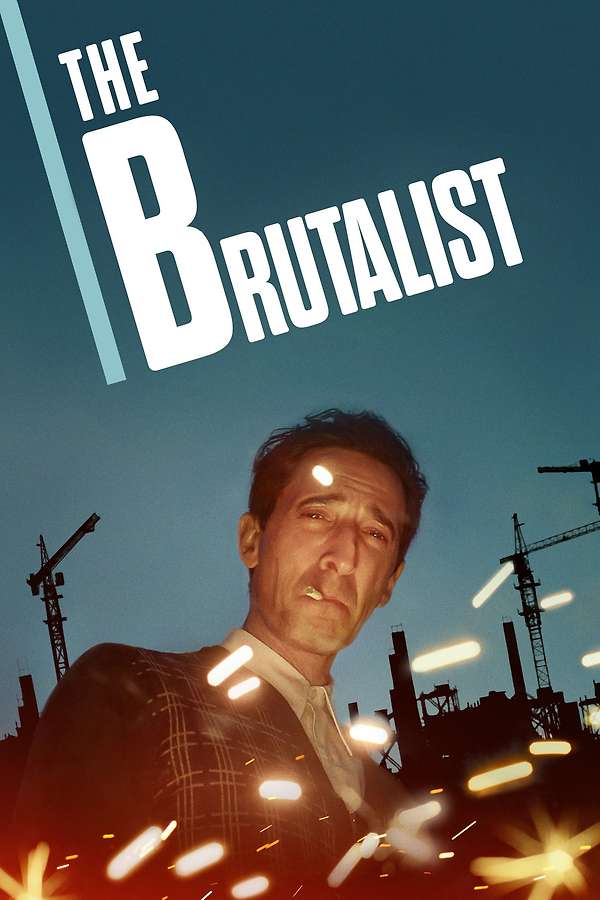
This review may contain spoilers.
The Brutalist begins and ends with Zsófia, László's niece. In fact, it ends with the same shot of her from the beginning being held at gunpoint.She only speaks twice in this movie: once about Israel, and in the end about her uncle's work.Art &.Nationalism - one creative, another destructive. Those are the only two inspirations that give her enough ion to find her voice. Despite what many have said, I do think the ending is hopeful. The evil patron has disappeared, and his name never mentioned in relation to the work. Instead, the focus is rightfully on the artist. And even if he can't speak to defend what his work actually means (if it "means" anything at all), it has inspired a near mute to eloquently share what it means to her. Even if it is tinged with the divisiveness of national identity, her words nevertheless inspire a crowd all gathered in iration of László. Perhaps a bittersweet ending, but it's indisputable that the world László's work now inhabits is a brighter, more peaceful world than the one he started in. What artist doesn't want to hear that message in these challenging times?
]]>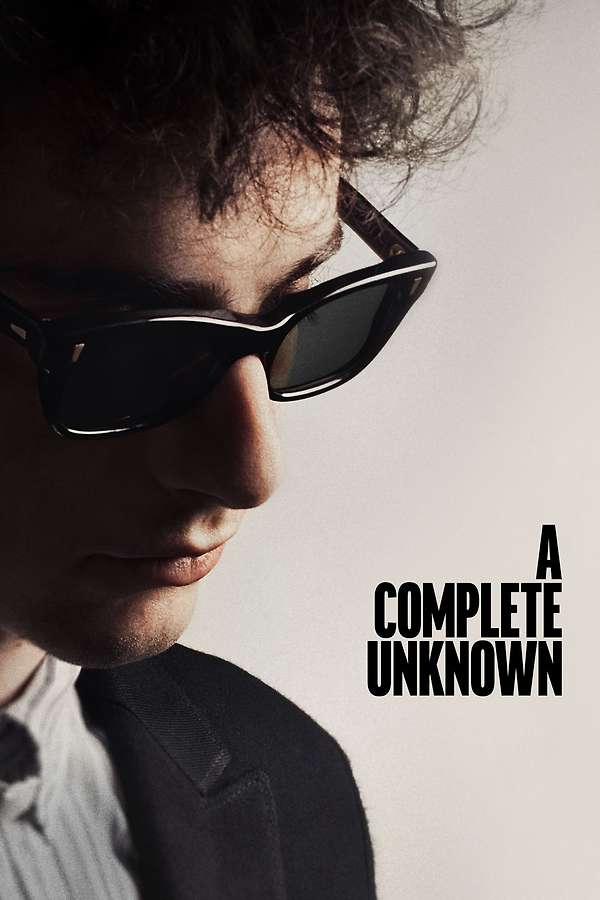
Boomer porn. A Complete Unknown is the kind of film that expects you to already know and love the music, so it can just play the artist’s songs in quick succession and expect the audience to laugh and clap along. This music biopic has all the hallmarks of the genre: a musician ahead of his time, obsessed fans that won’t leave him alone, and the artist struggling to maintain longterm relationships with women. It checks all these boxes.
Even with all the music that’s played, A Complete Unknown is flat and boring. It’s just one biographical fact stitched next to another in scene after scene. It’s aimless, and it lacks context. It never tries to give life to any of the characters or songs that pop up. Every moment is like a Marvel end credits scene where the audience is supposed to cheer for the latest Easter Egg.
The acting fares no better. While his singing is good, I can only see Timothée Chalamet as himself. As a “hipster” artist with limited facial expressions, Chalamet seems to play too much of his own instincts rather than the subject’s, and it’s especially hard to escape that feeling when in every scene he a different pretty woman on his arm.
The one exciting part of the movie is the finale: the infamous “Dylan goes electric performance.” This sequence actually has energy. It conveys the stakes of the moment, both personal and historical. And it also manages to incorporate most of the major characters in this story. If this movie focused on this event as the central conflict, maybe there’s a world where A Complete Unknown succeeds. But I shouldn’t have expected anything great from the director of Walk the Line, who somehow manages to direct another actor playing Johnny Cash. He can’t keep getting away with it!
Monica Barbara remains innocent, though. I wish her a successful career and hope to see her on the screen again soon.
]]>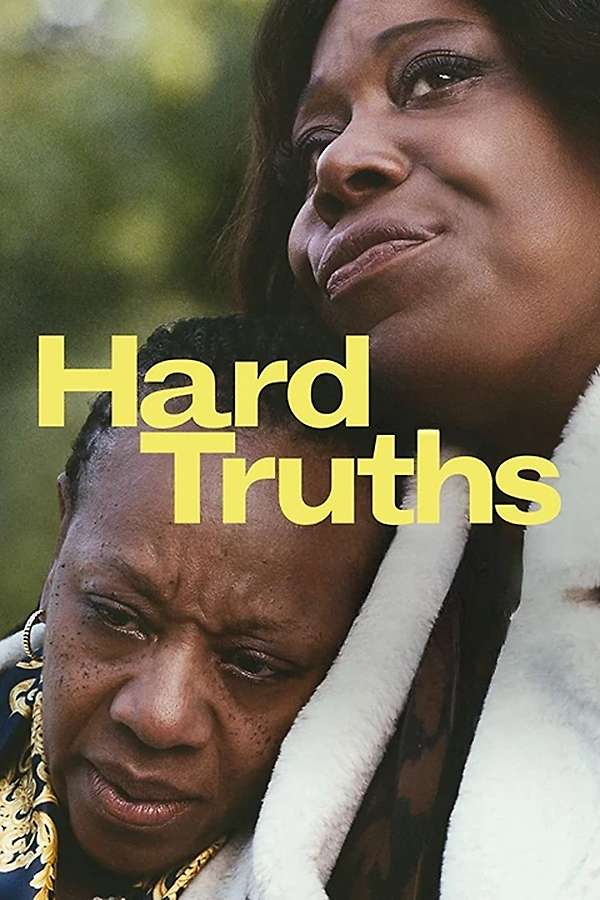
Somehow the funniest film I saw all year, I also did not expect a film that follows a highly neurotic and beratingly paranoid Marianne Jean-Baptiste to express the most joy. Yet Hard Truths contains multitudes, and it's a much more enjoyable watch that the premise would suggest.
An ensemble film, Mike Leigh's Hard Truths excels when it focuses on the indefatigable Jean-Baptiste. Though narcissistic and delusional at first, it's amazing to see her character Pansy run through the gamut of emotions by the film's end. Jean-Baptiste plays off an amazing tirade io dialogue from Leigh's script, and some of the insults she slings puts the likes of Succession to shame.
For that reason, though, Hard Truths slumps when it switches focus from Jean-Baptiste. Though the stories of the extended family could be compelling, it's as if Leigh abandoned them to shift his focus back to Jean-Baptiste. These half measures only work to weigh this movie down.
And though the melodrama at the end allows Pansy to convey the full spectrum of her acting abilities, it suggests too easy of a solution for a deep-ingrained psychological abnormality. Despite her rough exterior, Jean-Baptiste's layered performance intimated a deeply sympathetic character. It's a shame more time isn't devoted to her past and her desires. Nevertheless, Pansy is a character I'll long be ing.
]]>
Usually I’m loath to dock a film’s rating because “it’s not for me.” I’m a firm believer in the universal experience of cinema, and even if I can’t relate to a story directly, it can still express fundamental human emotions and expereinces that stem from our common humanity. Nevertheless, in I’m Not There, the singular reverence for Bob Dylan, an artist I have only cursory familiar with, is just a movie I struggle to emotionally connect with.
ittedly, the techniques in this quasi-Dylan biography are impressive, and if a film employed that same style for an artist I was more familiar with—say Radiohead—I would undoubtedly fall in love. It’s a fascinating storytelling tool to use different actors, characters, settings, and filmmaking influences to illustrate each phase of an artist’s life. It’s a clear attempt to abandon the stereotypes of musical biopics. And it's the moments that most deviate from the life-of-a-musician formula that stood out to me. Those moments are Ben Wishaw reciting poetry and Richard Gere in a fantasy Western land. Even though in those sequences I was the most lost, their detachment from any true facts of hisotry made the movie more engaging because I didn’t feel like I was missing any context. All I had to do was focus on the imagery and Dylan’s own words.
The other portions of I’m Not There are not as compelling. Despite this movie’s efforts to divert from the old storybeats of musician biographies, all it manages to do is slide into them in a roundabout fashion. The nonlinear structure of the story tries to hide well-known story beats, but they’re there nonetheless. Substance abuse, familial strife, and struggling under the spotlight are all the major plot points of three the storylines. While these moments can be compelling (especially seeing Heath Ledger and wondering what his career could have become), they're all so common to this genre that actually hiding Dylan's identity and his aging makes this movie all the more generic.
Even, as here, where the character story is lacking, there can be some immersion into the history and context of the time. But personally, I'm not in the mood to watch a story that touts the 60s as some legendary era that the best survived through. America is funding an immortal war overseas? And the youth are protesting it? Meanwhile a president has come into power to crack down on civil rights? Maybe once we recognize how common and easy it is for that to keep happening, we'll finally find a way to stop it. But until then, let's stop pretending that the artists of that decade somehow cured the U.S. of its ailments through song.
]]>
Such a splendid watch. The Beast is a mixture of an A.I. controlled-dystopia and a reflection on the hurdles of love over the centuries. Yet this intimate sci-fi thriller and historical drama never feels lost or muddled. It’s a pleasant watch, even as a specter of death haunts Léa Seydoux’s Gabrielle throughout her dream-like journey. The costuming is exquisite, and the camera is cold yet patient. Each new location this story tackles feels alien, yet familiar. It all stems from the central tension within this movie: the enduring power of love vs. the insatiable march of technological progress. Human ion always seems to win out in these dystopian films, but it’s not a given, especially in an age when more and more people blindly follow the latest capitalist product of Artificial Intelligence. Nevertheless, despite the terror of watching others lose their humanity, films like The Beast remind us of the joy and fulfillment that comes from all the pain of living.
]]>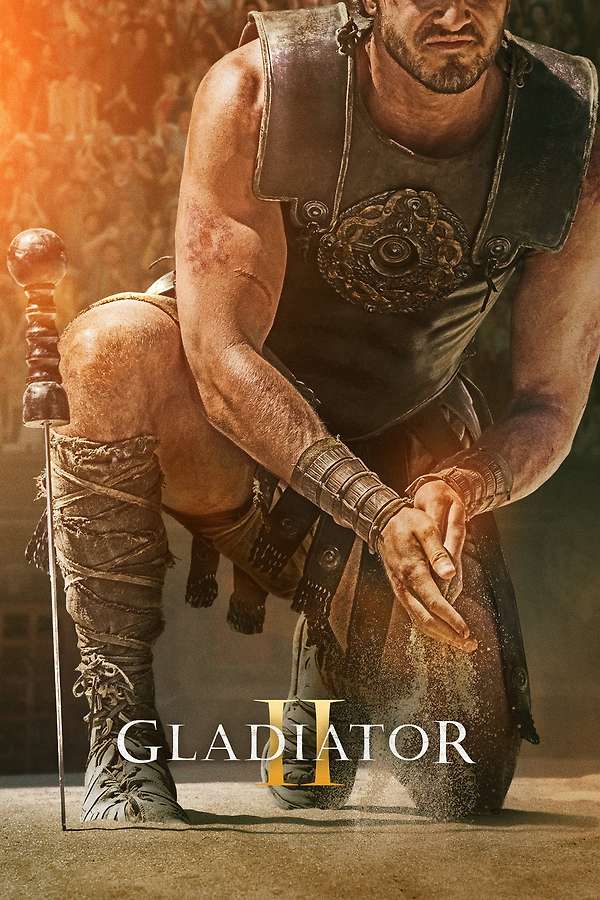
Despite many modern examples of sequels coming out decades after the original being solely blatant as cash grabs, Gladiator II feels like it actually could be a needed second part of the series’s story. While Gladiator did finish Maximus’s journey, the fate of Rome is left unresolved. This follow-up story picks up in the chaotic power vacuum left behind, and it shows how when one evil is defeated, a worse one may take its place.
There are many more characters from the original in this than I expected, and even more surprising is how many of the same archetypes appear again in this story: an arrested general that becomes a gladiator, a prisoner hiding his identity, a mad emperor using the games to distract from the empire’s problem, and a gladiator trainer who teaches his protégés to play the game like he did. But Gladiator II struggles to live up to the dynamism of the original. The general is not as inspiring, the emperors are not as mad, and even Denzel Washington pales to the commanding performance of Oliver Reed.
Despite the story’s obvious flaws (even more flawed than the first one’s), Gladiator II actually feels like a maturation of form for Ridley Scott. Most obviously, Scott shows his blatant anti-war sentiment that has developed in his late career. Though both Gladiator films open with battles, it’s clear in this second iteration that the war is much less glamorous and more savage in its execution. The gladiatorial sequences, too, are an impressive progression from the iconic moments twenty-four years ago. These moments in the Colosseum manage to go even bigger and bolder without becoming a joke.
And the movie just looks great, too. In an age when blockbusters are becoming grayer and muddled, the cinematography does an excellent job highlighting contrasting lighting and framing. The direction has no problem framing both the grand and the intimate. It’s as if the Scott’s genius vision managed to emerge from a long hibernation. Of course, the same can’t be said for the storytelling as a whole, for while Scott is smart enough to recognize that Maximus’s one act of vengeance isn’t enough to save an empire, he isn’t convincing in the solution he eventually provides. Though I don’t know if anyone can truly solve the death spiral of a greedy, bloody empire, it’s probably better off not attempting to at all.
]]>
Man, my brain is irrevocably broken when I think Gladiator has some deep insights to our current situation.
A throwback to the sword-and-sandal epics of yesteryear, the reason for this film’s commercial and awards success is a bit in the eye of the beholder. It could be because of the nostalgia for these historic movies of old Hollywood. It could be because it was an action film during an age where that genre is storming the box office. Or it could be because it’s the sort of grand spectacle of family drama, romance, and revenge that the Oscars typically go for.
In fact, it’s probably all of the above. Ridley’s Scott story about characters at the height of the Roman Empire has a little bit of everything for every type of viewer. As a result, though, it comes across as a bit of a mess. It starts rather succinctly. The opening battle frames the world and Russell Crowe’s Maximus well. And the entire first act sets up multiple through lines of the villain’s motivation, a potential love interest, and the stakes of the story. And when the fuel for vengeance pushes the film into act two, the comparisons to another Best Picture winner—Braveheart—would suggest a strong character-focused trajectory for the rest of the story.
Yet the film loses focus from here. It shifts gears more into an action film set in a gladiatorial pit. These action scenes aren’t exactly unwarranted; just look at what Braveheart did. But it lacks the character motivation to do so, and when there finally is motivation for Maximus—exacting revenge—it seems detached from the larger themes of the film. By the beginning of the third act, there seems like a potential to tie all the themes together, but the story opts for a high drama ending rather than reach for an overarching idea.
At the same, it’s the ending that pulls the whole thing together. It’s triumphant, reverent, and inspirational. Perhaps it’s my bias, but the score from Hans Zimmer score that makes this technically pointless moment transcend into meaning. It adds depth to the end of Maximus’s journey, and it hints at something greater for Rome, as if a great darkness had been lifted. Overall, Gladiator is a wonderful viewing experience that manages to appeal to many without falling into the trap of appealing to no one. Always a fun revisit.
]]>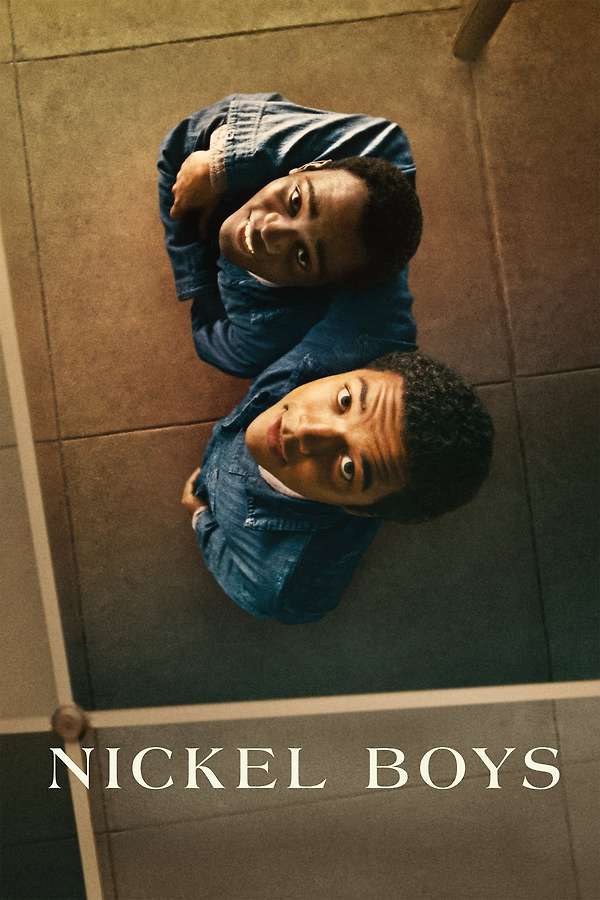
A stream-of-consciousness film, Nickel Boys is mesmerizing with its first person point of view conceit. Many will view this film as this year’s The Zone of Interest—both are historic films that use experimental film techniques to explore institutionalized racial violence. Yet with Nickel Boys, the perspective is the opposite. Instead of cold and restrained, the emotions here are ionate and inescapable.
The sole use of the POV shots can be disorienting or off-putting at first, but director RaMell Ross eases the story into this approach. Like a child learning to swim, the audience takes baby steps into this impressionistic pool. Each scene is just a moment in time, like randomly picking memories. And like a chaotic life, the audience is left to make sense of all that’s happened. The film is not meant to be a mental exercise, however, as the rhythm of the movie burrows itself into the audience’s intuition.
By constantly being in these characters’ shows, Ross tears down the facade that separates the viewer from reality of the tragedy. The emotions on screen are no longer foreign phenomena to be observed at a distance. They are real and raw. Nickel Boys refuses to allow the audience the safe distance of being on the other side of the screen. It’s a gradual shift, but by the time the story ends, the audience does not realize how transported they are into the injunctive inherent to this film. And it’s with this guard down that the final moments hit, and all those memories, feelings, and dreams of the future come fully into perspective. No longer is there a feeling of “otherness: because the characters are on the big screen or a different race. The pain they experience feels like it directly happens to us, and no amount of crying for justice after the fact can ever remedy the tragedy that pervades this film and our country’s history.
]]>
I love seeing how Portrait of a Lady on Fire has already inspired women filmmakers.
Though a straightforward tale of overcoming alcoholism, The Outrun is elevated by its star and crafts. Soairse Ronan is always a gift to witness, and even here with threadbare background to her character, she is able to add depth and shades of emotion to the predictable journey. The story won’t reveal much more about the inner workings of the central Rona, but with her words and and body language, we catch glimpses of her mind as it moves from tortured to freed, from burdened to serene. The composition of the shots likewise go a long way. I would have liked to have seen more connection of the environment to Rona’s journey other than it being home and away from civilization (it seems that any other locale could have swapped in no problem), yet even in the most mundane plot points, the camera takes a full gulp of this fresh, liberating air. Though I hate to suggest watching any movie ively, I would love to have these shots on as a screensaver of sorts just to ire them.
]]>
I seeing this trailer all the time in an old VHS I used to watch. I finally got the chance to check out this lesser known installment of the Charlie Brown movies, and there's good reason why it's not as well known.
To its credit, however, the sequence of the various rafts floating down the river through an old mining town is delightfully relaxing and ambient. I would watch a full-length animation just of that.
]]>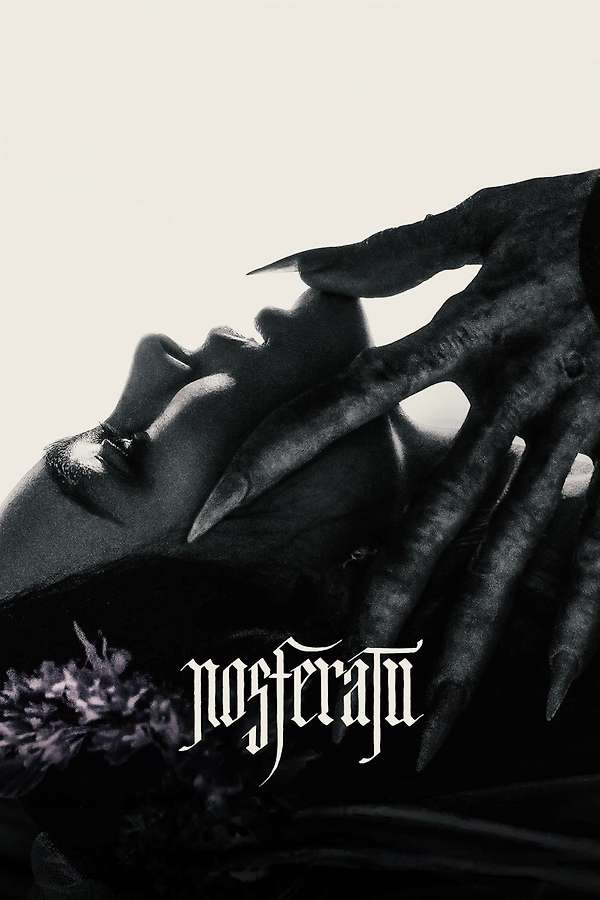
Despite Robert Eggers's famed adherence to his source material, it is with a heavy heart that I must report that the new Nosferatu left out the campiest scene from the 100+ year old original film.
Despite being a remake of one of the most famous black-and-white films of all time, Nosferatu doesn't feel like a retelling of the golden age of cinema. The focus is much more on color and less on staged acting, more aligned with New Hollywood. Indeed, the portraiture of Barry Lyndon, the demonic acting of The Exorcist, and the subjective point-of-view jump cuts seen in something like Run Lola Run are just some of the many techniques that help give this version of Nosferatu its own identity. The aspect I'll most of this film is the cinematography. The lighting, the blocking, and the framing make every moment burst with character emotions and story energy.
Thematically, Nosferatu can appear like a rather conservative film on the surface. The fundamental conflict is based on xenophobia, the characters suffer for their immorality, and scientific knowledge in medicine is less useful than the power of faith. Yet this movie gets at more fundamental ideas. Namely, it is about seeing society crumble around us--an idea that hits a bit too close to home right now. And within that collapse, it's about how we keep going on with our everyday lives, and what sacrifices we will make for our loved ones. Nosferatu isn't pushing any new ideas, nor would we expect a remake of a film from the 1920s to do so, but in rearticulating the truth, it may be the kind of movie we need right now.
]]>
I really enjoyed this well-crafted dark comedy on a first watch, but I suspect I would enjoy it even more a second time around. The film crafts itself as a conspiratorial thriller of sorts. There is a constant state of unease from Sebastian Stan's shifting eyes to noir-like strums of the piano-focused (and highly underrated) score. Eerie and unexplained surroundings suggest malfeasance is afoot. And the experimental nature of the central medical procedure seems to hint at a devastating revelation to come later.
Yet nothing of the sort happens. For all the hullabaloo, Stan's Edward is a relatively uncomplicated, straightforward guy who got put into a bad situation. But if it were just the unfortunate circumstance holding him back, he would have found a much better life after. Nevertheless, a fundamental unease still lingers.
This is where the charismatic Adam Pearson is critical. It's a moment of clarity, and when the humor really kicks. Turns out, it was all in Edward's head, and his unfortunate life really came from his loser energy. It really all hits at once in the end that disability and disfigurement don't necessarily hold people back. You can have move star good looks, and you'll still lose out to a man with more rizz. Really, an inspiration to us all.
]]>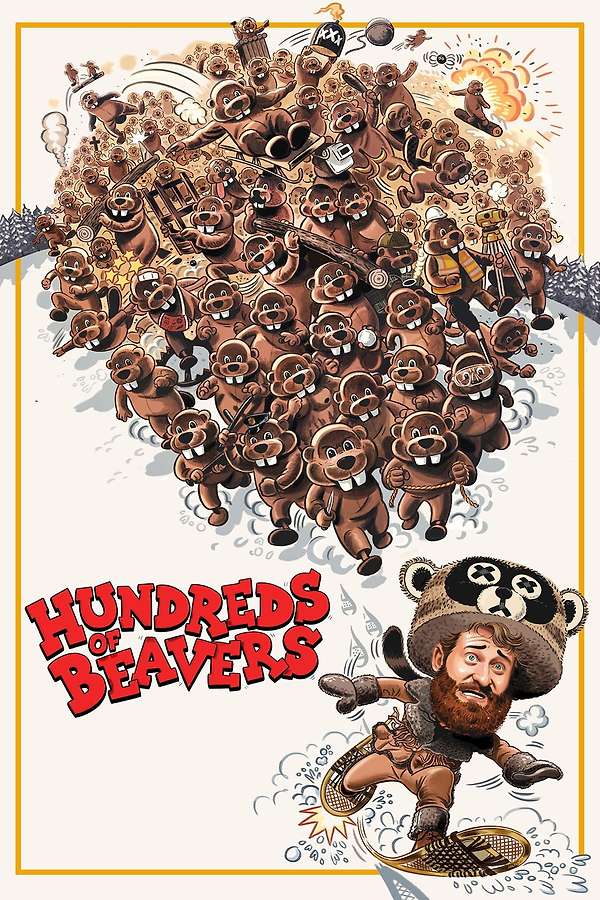
I love how a low-budget, original film like this one can be made and become a sleeper hit. It's very clever and witty at times, but at other times it can feel repetitive and tedious. Still, it's a fun watch and worth watching much more than most of what Hollywood throws out these days.
]]>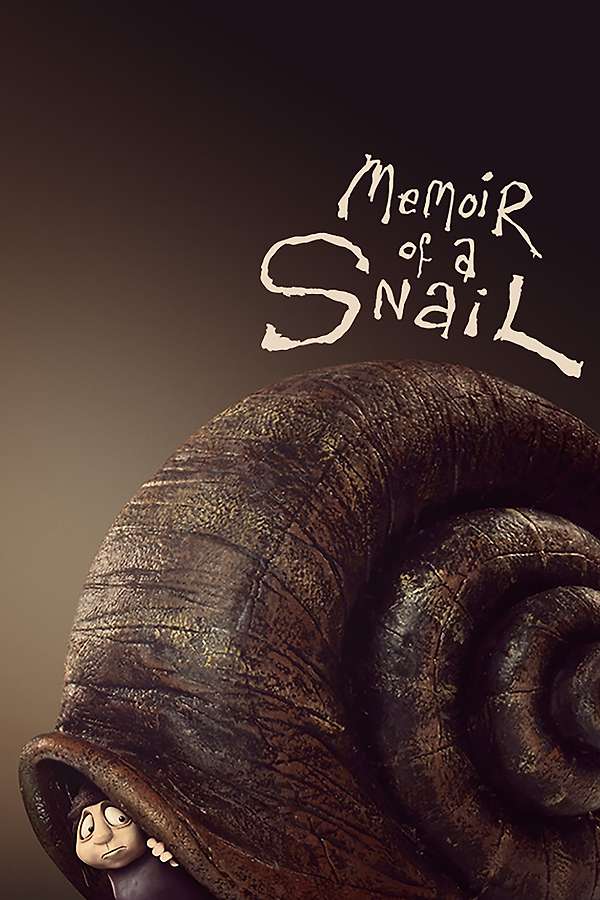
Painfully honest and beautifully vulnerable, the greatest strength of Memoir of a Snail is its ordinariness. Yes, Gracie's story is wholly unique, but so is everyone's journey. Yet despite the different paths we all take, we share the same facts of life. We all grieve loss, celebrate life events, and our loved ones every step of the way.
It's this fundamental, emotional understanding that prevents the quirkiness of this film from being otherwise off putting. The claymation style sends incorrect signals to families that Memoir of a Snail is a movie for children, but this melodramatic take is riddled with adult themes and imagery. Indeed, the frank and open depiction of sex in this otherwise family-friendly medium hints at an author's conniptions with the subject from childhood. Nevertheless, despite a final twist that feels like it's trying to cram a happy ending behind the more believable kelodrama that came before, this movie is a pleasant watch. We need more movies that are real and willing to take risks like this one did.
]]>
Watched on Sunday January 19, 2025.
]]>
As s slice-of-life film, Shoplifters may be the kind of movie we've seen before, but that doesn't make the characters and story any less affecting. Despite this "found family" of thieves seeming to fall apart to betrayal at the first sign of being found out, director Hirokazu Kore-eda emphasizes that the facade was actually rooted in truth. No matter what these "family" may call each other, it doesn't change the fact that a bond exists. Even when tested under threat of prison and shame, this band of charismatic rogues can't help but self-sacrifice for the good of each other. And even when they must separate physically by law, there's a mark that never leaves. These shoplifters managed to steal each others' hearts.
]]>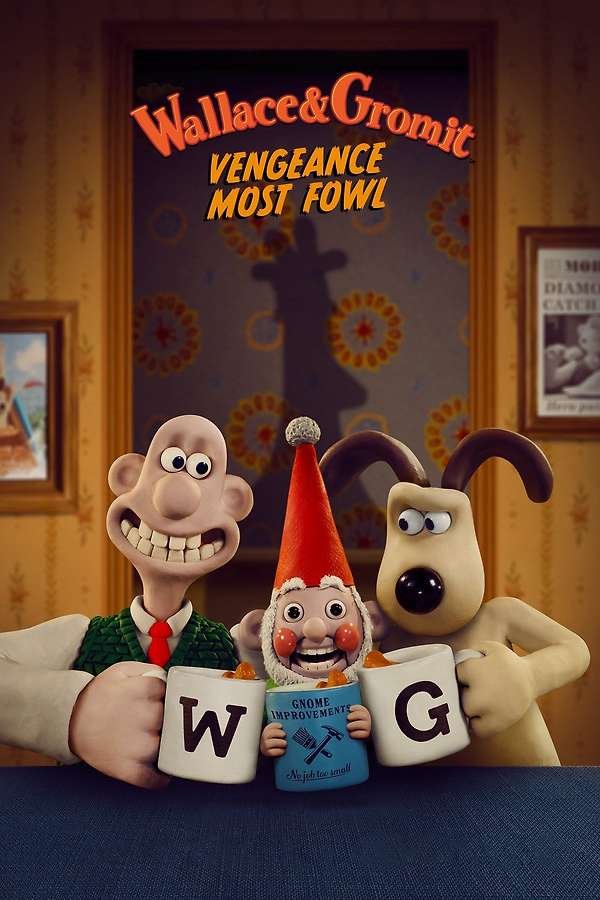
Did I expect so many plot points to be lifted from Mission: Impossible – Dead Reckoning Part One? No. Am I upset about it? Not in the slightest.
]]>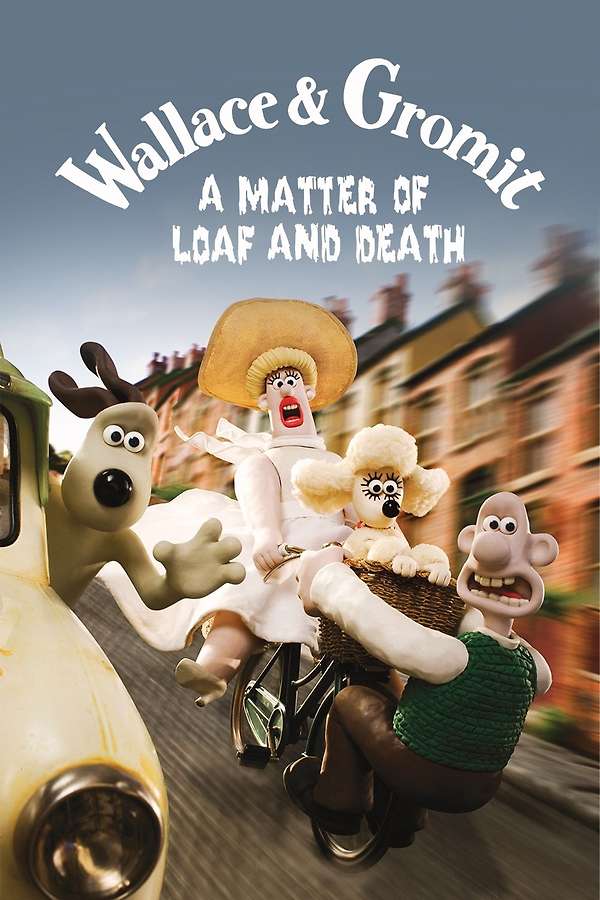
This series started as a low-budget, original claymation short and evolved into a franchise that references Ghost and Aliens while using dolly zooms. It's cool to see a franchise change while keeping its core spirit.
]]>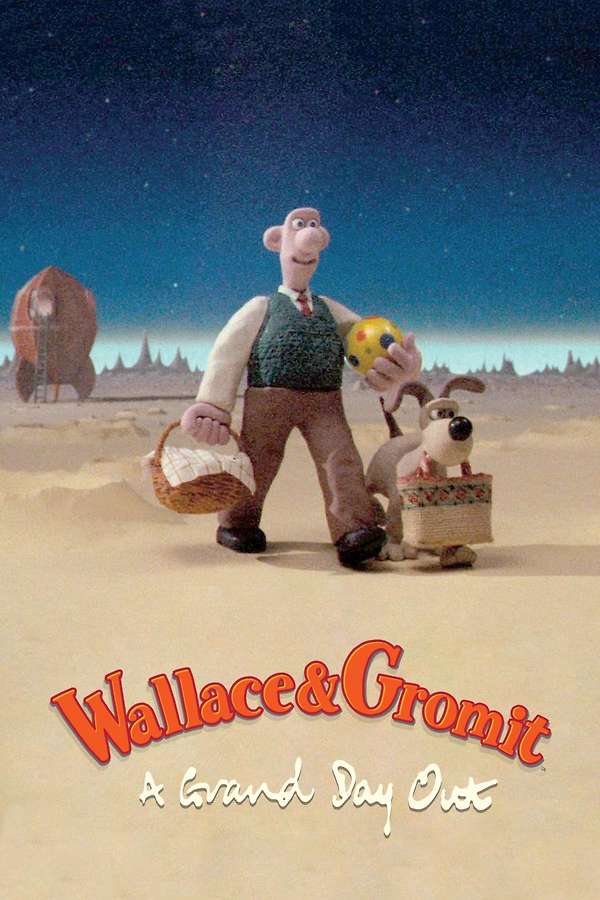
Watched on Saturday January 25, 2025.
]]>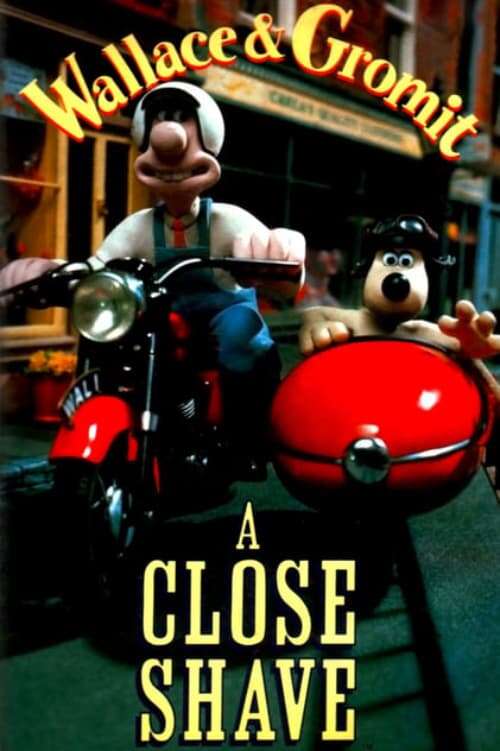
Watched on Saturday January 25, 2025.
]]>
Watched on Saturday January 25, 2025.
]]>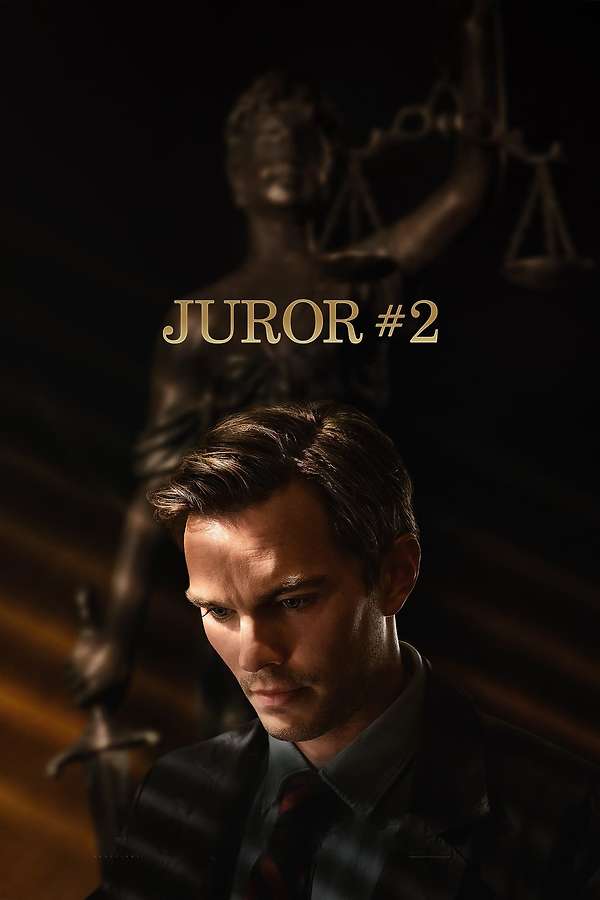
Partly Eastwood's take on 12 Angry Men, partly his take on the modern state of the U.S. justice system, it's remarkable how clear-eyed Juror #2 is about the vast majority of cases that flow through our criminal courts. It does not shy away from the reality of most criminal defendants get understaffed representation, nor the fact that many juries neglect to deliberate the facts and decide only on biases, assumed guilt, and just getting out as soon as possible.
Nevertheless, Eastwood seems to suggest that despite charismatic overtures against truth, despite political incentives to the contrary, and despite pure human laziness, justice always prevails in the end--no matter who it hurts to get there. Whteher this movie is a ray of hope or a call for help, we, as a country, have yet to see.
]]>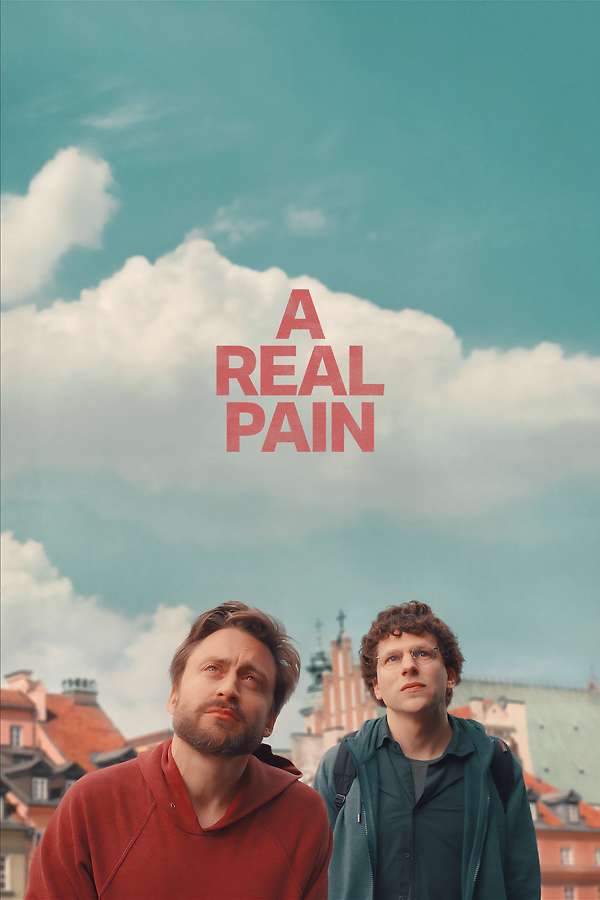
Felt like a nothingburger of a movie, where the story sets up the characters and the first act but had no idea how to resolve the conflict that shepherds in act two. The only real character development comes from the neurotic introvert buddy-half learning to let loose like the extraverted, unconscientious half, but I've seen that a million times already. It also seems like a weird story to focus on when the journey itself wants the characters to slow down and think about the pain around them.
Needless to say, A Real Pain did not cheer me up from Trump's second inauguration. It did, however, fuel my desire to visit Poland.
]]>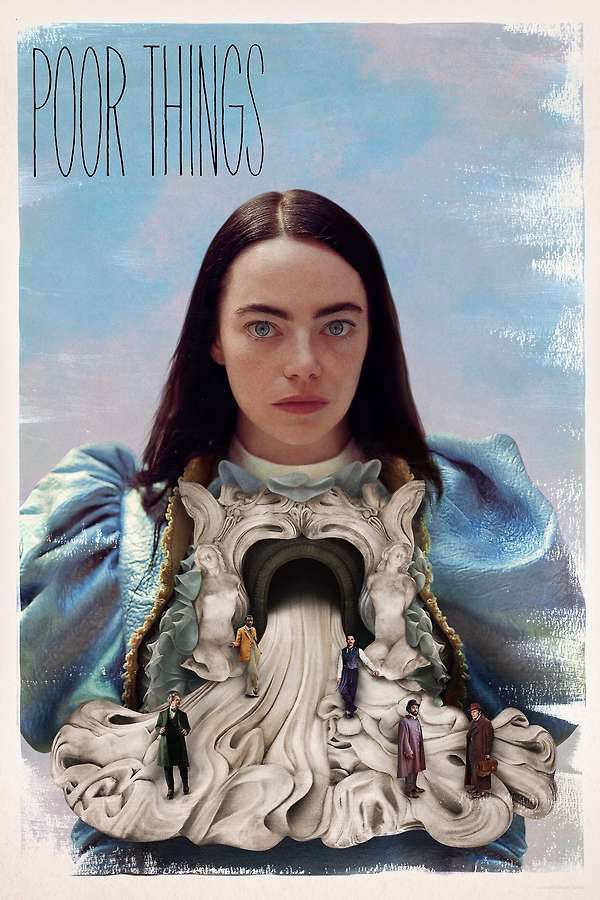
Watched on Tuesday January 14, 2025.
]]>
What most surprised me about The Brutalist—the sprawling epic of the year, clocking in at over three and a. Half hours with an intermission—is how quiet and intimate this film is. Most of the scenes, it feels, are simple conversations between individuals, often in prolonged shots that leaves no room to look away. The overall ethos of this film seems to hit at what we’re lacking in media today. Audiences are hungry for stories that are not 60-seconds long and constantly cutting.
But the intimacy does not preclude ambition. From the opening shot, with an upside down Statue of Liberty, each moment never falls to paint the screen with awe-inspiring images. Its imagery is fit for the grand, staggering buildings he designs, yet it’s just as alluring in the simple, sleek library, and even the dilapidated alleys of Philadelphia. And with every step of the way, an accompanying score dazzles with a triumphant trumpet, sows dissonance with collapsing jazz, and imbues beauty in the heartfelt moments between man and wife.
Where I find myself struggling most, though, is the inscrutable lack of ideas behind this story. One problem is that the film itself is conflicted. Where the first act deals with the daily struggles of the immigrant and the spectacle of bringing to life grand ideas, the second half falls into melodrama, and it seeks less to examine the eccentricities of this genius architect but instead to only usher him into victimhood. Furthermore, while I think there is a much needed conversation about disillusioning the American immigrant story myth, this movie did not seem to be the right vehicle for it. To escape the horrors of WWII and the Holocaust, it’s hard to argue that establishing a life in the U.S. is a miserable experience in comparison. In fact, the story seems at odds with itself as László seems more at peace with himself as a menial laborer than when he finds his dream job. This conundrum could become clear on a second viewing, but whatever its faults, The Brutalist is an ambitious and monumental achievement.
]]>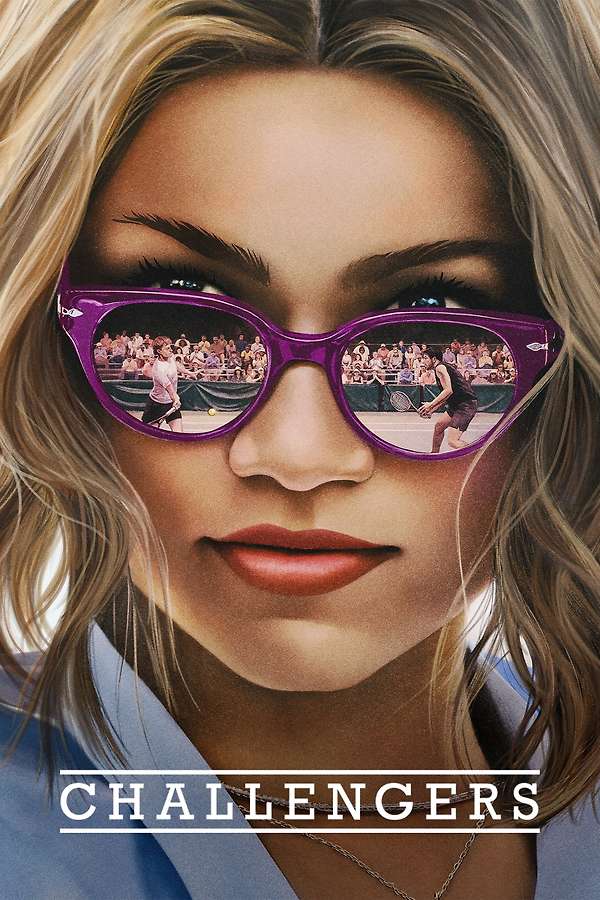
Watched on Sunday May 19, 2024.
]]>
Watched on Saturday May 4, 2024.
]]>
To call Challengers a tennis movie is to conceal all the machinations beneath the surface. Fundamentally, this story is about ambition. But the ambition is divided. They are tennis players striving to be the best, yet they are also people with human desires. And those desires of live, friendship, and greatness all come to a head.
What's most compelling, though, is how all these desires rely on each other. Their relationships are built on their ambitions, and their ambitions are driven by their relationships to each other. As such, when their relationships fail, so do their ambitions, and their relationships suffer when they lack the ambition. A simple reconnection, and a chance at victory, can rekindle those desires in a thrilling fashion.
And what a thrill ride this movie is. The filmmaking is absolutely dynamite. Not a single shot is wasted or taken for granted, and each new camera technique out does the last. I still can't get over the fact that we were the ball between their serves. The editing is top notch, capturing every feeling, move, and mistep. And that score. It is now one of the greatest of all time, and Reznor and Ross have placed themselves among the masters of their craft. With so many layers, details, and exciting moments, I don't think this is a movie I'll ever get tired of watching.
]]>
"All Under Heaven
Hero is a fascinating film from a cultural history perspective. Since the advent of cinema, it seems that every major nation has created artistically masterful movies that reflect their culture. Even the intellectually closed society of the Soviet Union produced numerous great filmmakers. China, on the other hand, never seemed to produce any great mainstream filmmakers, despite its vast size. Yes, film industries on the periphery of China itself--namely Hong Kong and Taiwan--have had a decently long history of cinematic masterpieces, but mainland China seemed to lack that film output.
Hero is the first film I've seen that feels like a real Chinese masterpiece. It's filled with some of China's stars, set deep in the nation's long history, and filled with numerous martial arts sequences. Even more than that, though, this story cuts at a fundamental identity of China. The spirit of "All Under Heaven" can feel viscerally antithetical to the spirit of many Western democracy viewers, and I myself can it it feels terrifying in some ways. But in the context of the story and the spirit of Chinese history, it's oddly compelling. At the very least, it's a window into the mind of another culture and why our stories won't necessarily resonate with them.
]]>
It takes a world-class directorial talent like David Fincher to make me completely invested in a movie written by Aaron Sorkin.
The Social Network is a perfect technical achievement. There's not a single beat misplaced in this nonstop tech bro thrill ride. Even still, I haven't always been the biggest fan of this film. The main culprit is that I normally don't care for Sorkin's writing style. His characters say a lot, but it's so rapid-fire you're not supposed to follow what they're saying, only the feeling it conveys. But I hate that. I want to follow the facts of what they're actually saying. I also think Sorkin has a bad habit of glorifying anyone he sees as smart. Not every smart person needs a zinger to end the conversation.
Yet, over time, this movie has proven to be prescient. Every ing year, the men (and gender is key to this story) grow richer and worm their way into more power. And despite all that power and wealth, The Social Network cuts like a knife. No amount of money or power will ever satisfy these internet tycoons because they are chasing a recognition that they will never get. The irony is that their drive for esteem is what makes them so despised by the public, leading to a vicious loop where they seek more power for prestige, leading to even less respect from the people at large.
The lonely ending really brings this story home. It's almost a repudiation of all the sarcastic Sorkin-sms that came before. For all the rhetorical owns and witty comebacks, it amounted to nothing in reality. Yet we all, somehow, must live with the consequences of their actions.
]]>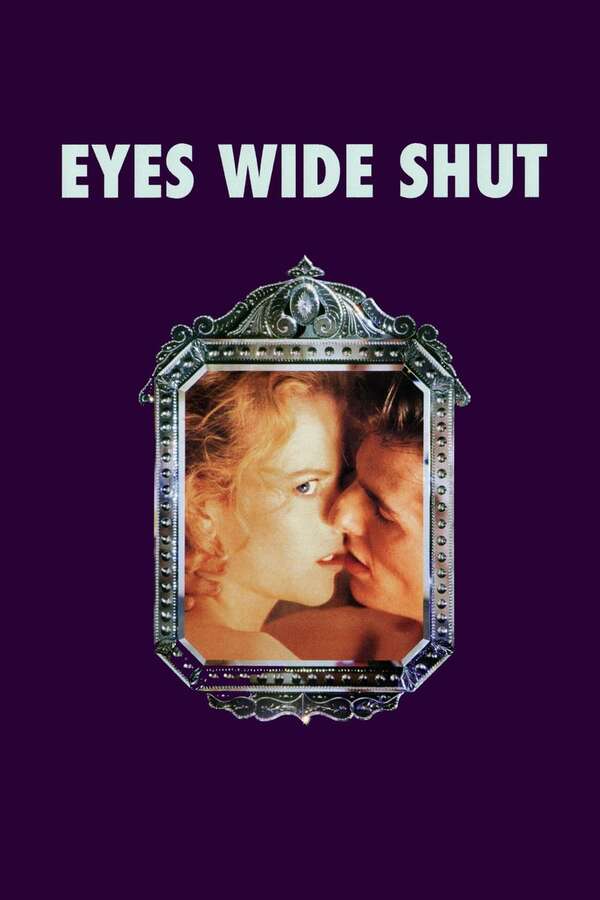
The dream-like atmosphere of this film is appropriate because, ultimately, Eyes Wide Shut is a bedtime story. A story for men, specifically, so they feel and understand how dangerous sex can be for women. A fairytale turned nightmare, Tom Cruise's Dr. Bill Harford is constantly put in situations where sex puts him in danger. STDs are the example men are already familiar with, but the scenarios get increasingly surreal, like a dream losing its grip on reality. A man using his daughter to entrap and blackmail men for statutory rape. A secret society of the rich and powerful who destroy any man who treses on their sex games. Unbelievable scenarios that leave the audience asking questions, but they're not meant to have answers, only provide a feeling. The feeling is truth, truth about how unsafe women can feel in the world of sex. All while navigating a world that feels unreal, a benefit of the New York City setting here actually being a soundstage and creating a flat, unlived-in environment.
Despite the danger, however, both men and women can come together, overcome their differences, and get down to business. A happy ending indeed.
]]>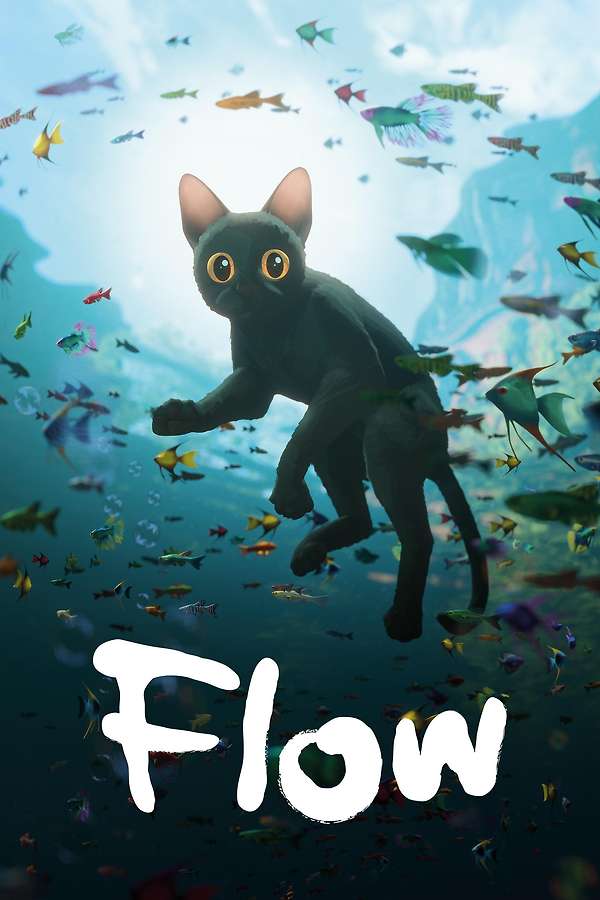
Watched on Monday January 6, 2025.
]]>
Koyaanisqatsi is one of my friend's favorite films, and we watched it together for his birthday. I can imagine it being an all-encoming viewing experience that's almost hypnotic. Unfortunately, it felt a bit too disted. There wasn't a central throughline or clear pattern of progression that kept me invested. It is nice, though, as a time capsule of sorts to that era of American urbanism. I wonder if the original Candyman got some inspiration from the city scenes: both the luxurious and the dilapidated.
]]>
A sweet little teen romance that feels surprisingly progressive 10 years later. It's nice to find a queer romance that isn't mired in tragedy.
]]>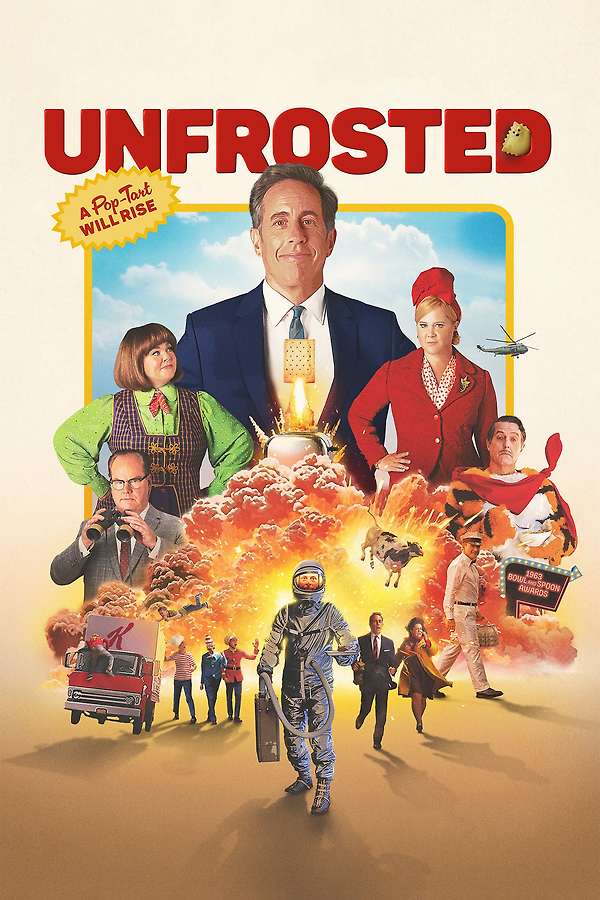
An absolutely surreal watch, Unfrosted feels like the kind of film where they just wrote a bunch of unconnected jokes with no basis in the story at all. I never had this thought before, but I feel as though jokes in a comedy have to have a purpose behind them. What is the joke directed to? Is it forming a relationship between characters? Is it undercutting audience expectations to shift their perspective? Is it a scathing critique of power?
As an example of what not to do, the comedic climax of this film is a bunch of breakfast mascots recreating January 6th to storm corporate headquarters, only to fail. What is the purpose of this joke? Is it highlighting the lameness of the mascots that they're like the failed insurrectionists? Is the joke trying to show the absurdity of the corporation that disrupting the company is like disrupting the certification of an election? Is it meant to poke fun at Donald Trump because it's reminding audiences of his failed coup? Because I'm not sure what to make of it, it just felt weird.
That's how all the jokes play out in this movie—their lack of basis compounds with a dry indifference from the actors themselves. None of them seem invested in their characters, what they're doing on screen, or what the plot is. It's like they're attempting a cool irony so they're not off-putting to audiences, but while they don't scare anyone off, it doesn't win many people over either. For such a high production value, it really didn't seem like anyone cared about being there. A ion project, it is not.
]]>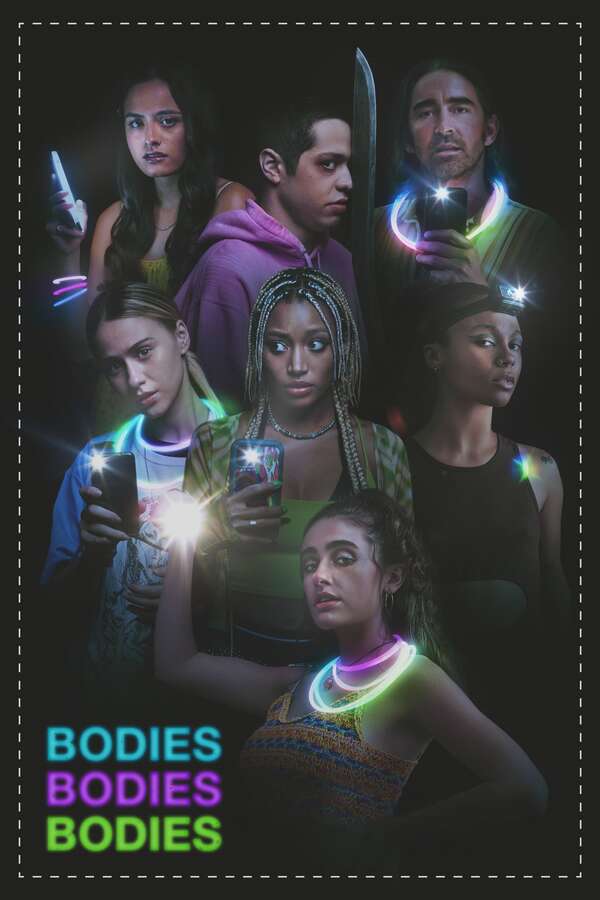
Such a fun and poignant generational thriller. I could imagine a bad version of this story that lectures and demeans Zoomers and influencers. Bodies Bodies Bodies, despite its gory and bloody plot, has a light-hearted nature from its low-stakes, down-to-earth focus on this group of friends. When most of their squabbles are based on petty social hierarchies and immature grievances, the vicious confrontation between these characters is actually cathartic to watch. With some alluring neon and an ending that makes it all worthwhile. this film greatly exceeded my expectations.
]]>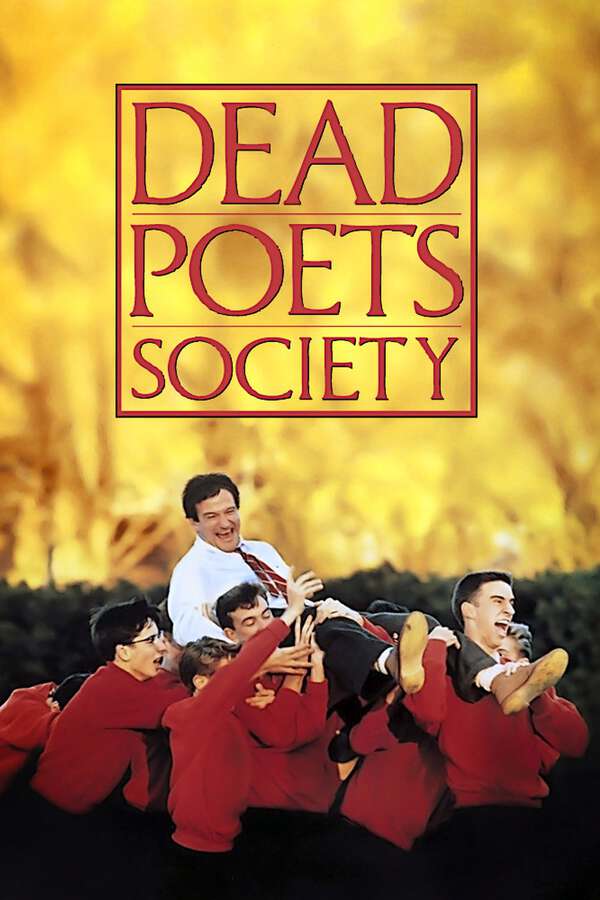
This review may contain spoilers.
Is there any other film out there whose reputation is so far afield from the actual movie's quality? Before seeing Dead Poets Society/i>, the impression that I had was a loud and unrelenting heart-on-sleeve story of young artists rebelling against the machine, something like the worst parts of Rent and Glee. The reality is much different and far more interesting. This story is a quiet, contemplative coming-of-age narrative with a lot more introspection and redefining of masculinity that still shines brightly some thirty-plus years later. The themes of self-discovery, individuality, and self-expression never tire, and they're buoyed by Peter Weir's deft direction and Robin Williams's ever-dynamic performance.
Now, one facet of this film that seems open to interpretation is the potential queer angle of Neil and possibly other boys in the group. I'm normally loathe to force a gay interpretation of male friendships because it can sometimes cheapen the importance of platonic relationships between men. Here, however, viewing Neil as someone struggling with homosexuality deepens his character. His tragic suicide came after his father disapproved of his performance in a play and threatened to send him to military school, plus a chance at Harvard Medical School. While having to leave his friends behind and attend a more strict school would obviously be miserable, to take his own life for that feels extreme and almost cheapens real instances of suicide for the sake of melodrama.
Instead, if Neil felt like he could never live as his true, queer self, that would be much more compelling. His role in the play likely was the first chance for him to express who he was, even if it didn't directly implicate his sexuality. Nevertheless, his father rejecting his expression and yanking him away from a new lifestyle he came to love essentially amounted to a complete repudiation of Neil and his dreams. If Neil couldn't even be allowed to act onstage, there is no way he could ever be in love with another man. Especially for a story that takes place in 1959, Neil may have only seen misery in his future, constrained to a life that was draining any ounce of happiness out of him. If that were true, death may seem like the only alternative to him.
I have no clue if, under such an interpretation, any of the boys were in love with Neil, but whatever relationships they had with Neil were strong. Regardless of whether they were romantic or not, Neil's sexuality does not diminish the strong bond the boys had together. I wonder if Dead Poets Society were made today, if they would have made Neil's sexuality more explicit, or if the fact that it remains as hidden as it would have been for him back in 1959 makes the shock of the moment all the more powerful. In any case, Dead Poets Society remains timely and universal to this day, and I hope that audiences of all ages, sexualities, and generations find inspiration from the simple beauties of art, friendship, and self-expression.
]]>
Watched on Monday December 30, 2024.
]]>
Unfortunately, this type of humor doesn't really work for me. So, in overall viewing experience, Anora was the least emotionally compelling of the Sean Baker films I've seen. There are still plenty of things to like about this unexpected indie hit, but in other ways, Baker lost his charm. Unlike his other movies, Anora does not focus on a singular location: a place isolated by geography and a lack of mobility. There's also no concerted attention on a specific community of people, which, in this case, can make the slice-of-life elements feel unmoored and overall a tad less touching.
Perhaps what I missed most in Anora was Baker's subtle yet noticeable brand of style. As nuanced as it was before, here it is even more muted and withholds its punches. You'll find some camera zooms and fish-eye lens, some close-ups and contrasting warm and cold color pallettes, but it all feels so robotically practical. That is, it feels like these techniques are only there to follow the plot and not to imbue an artistic opinion. Lastly, as jarring as some of his surreal endings have been, it was almost more jarring to not have an unreliable narrator point of view cap off the conclusion of the story as Baker has tended to do.
At the same time, I can see how the lack of these signature Baker items made this movie more palatable for general audiences. For one, it’s a lot easier to empathize with a single person than a group of people, so the sole focus on Anora is easier to digest than discussing strippers generally. Moreover, many viewers, I imagine, would be turned off by the more stylish elements of Baker’s other films. Finally, a film with a plot, albeit a thin one in this case, is much more acceptable to many movie-goers than the meandering slice-of-life stories that pervaded Baker’s filmography.
I'm nonetheless glad Anora is getting mainstream attention; Sean Baker has gone unheralded for far too long, so it’s about time he got his flowers. Even if it's not my favorite, Baker's new film nevertheless grapples with important themes: that of wealth inequality, for one, and the dignity of sex work that's always present in his stories. And even as Anora seems to pull a 180 by focusing on the uber rich rather than the downtrodden, Baker pulls out a throughline between these two groups of people. Both lack inhibition when it comes to pursuing hedonistic pleasures in life. For the rich, they never have to exercise self-control because they don't face consequences, but for the lower class, oftentimes that quick high is the only pleasure they get in their lives, so there’s no point in withholding it. Thus, the marriage centered in this movie is more than just a plot point. It’s a metaphor for the unlikely commonality for the very best off and the worst off, an unexpected area of common ground that nevertheless collapses once the newly formed couple tries to move anywhere beyond their pleasure garden. As expected, such a union is bound to fail.
]]>
The only movie you'll watch all year where a black cat must learn the lesson from the poem Ozymandius (probably)
Breathtaking water imagery, though the scenes on land can feel dated in appearance. A lesson in survival for a climate change ravaged world, Flow is a fun odyssey of sorts for a ragtag group of animals who don't speak to each other at all. Each animal managed to have their own unique personality despite not speaking a single word at all. It's an impressive feat of characterization, though it helps that this movie can lean on countless other survival stories that came before it. Although filled with many supernatural aspects, the most unbelievable part of this movie is somehow the fact that a black cat, yellow lab, lemur, and capybara were all in the same part of the world together.
]]>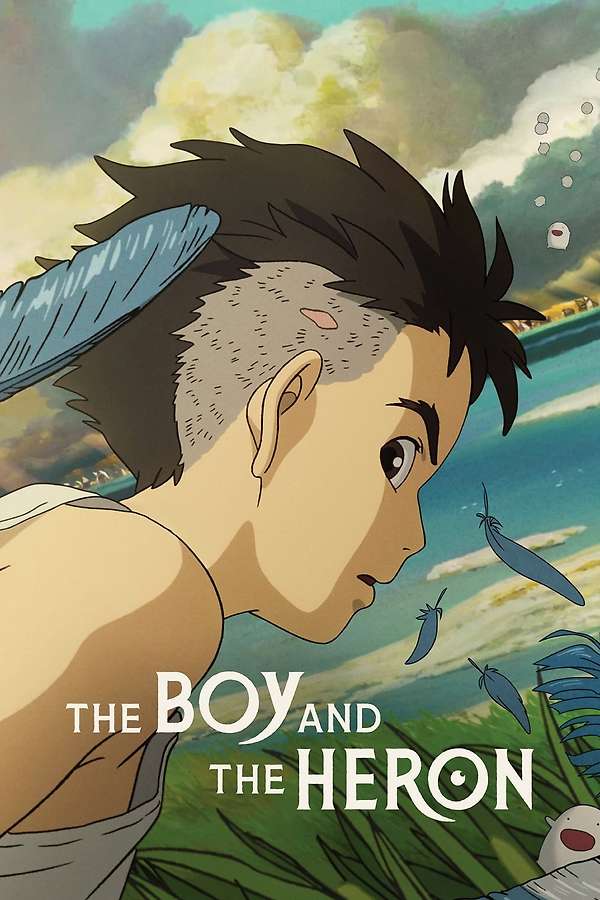
Watched on Wednesday January 1, 2025.
]]>- Challengers
- Nickel Boys
- I Saw the TV Glow
- All We Imagine as Light
- Conclave
- Furiosa: A Mad Max Saga
- The Brutalist
- Dune: Part Two
- Nosferatu
- Do Not Expect Too Much from the End of the World
...plus 10 more. View the full list on Letterboxd.
]]>My top two favorite lead performances per year, currently starting at 2018. The two films per year are just in alphabetical order and do not express my preference apropos the other.
Originally it was going to be a different list for actor and actress but that framework is dated
- Anatomy of a Fall
Sandra Hüller
- Oppenheimer
Cillian Murphy
- Everything Everywhere All at Once
Michelle Yeoh
- TÁR
Cate Blanchett
- The Power of the Dog
Benedict Cumberbatch
- Spencer
Kristen Stewart
- The Father
Anthony Hopkins
- Quo Vadis, Aida?
Jasna Đuričić
- The Farewell
Akwafina
- Uncut Gems
Adam Sandler
...plus 2 more. View the full list on Letterboxd.
]]>- The Boy and the Heron
- Past Lives
- May December
- Poor Things
- Oppenheimer
- The Zone of Interest
- Killers of the Flower Moon
- Godzilla Minus One
- Anatomy of a Fall
- Barbie
...plus 10 more. View the full list on Letterboxd.
]]>- TÁR
- Decision to Leave
- Everything Everywhere All at Once
- Nope
- RRR
- Aftersun
- The Banshees of Inisherin
- All Quiet on the Western Front
- Top Gun: Maverick
- Guillermo del Toro's Pinocchio
...plus 10 more. View the full list on Letterboxd.
]]>Every year, Metacritic compiles together critics' top films of the year lists and aggregates them for a consensus of where movie critics as a whole stand.
How many have you seen? Did your favorites make the list? Comment your thoughts below!
See the list here
- Everything Everywhere All at Once
- The Banshees of Inisherin
- TÁR
- Aftersun
- Nope
- Top Gun: Maverick
- The Fabelmans
- Decision to Leave
- RRR
- EO
...plus 20 more. View the full list on Letterboxd.
]]>- Drive My Car
- The Power of the Dog
- The French Dispatch
- In the Heights
- The Tragedy of Macbeth
- Spencer
- Petite Maman
- Dune
- Licorice Pizza
- Pig
...plus 10 more. View the full list on Letterboxd.
]]>Watching all 21 of the MCU films before Avengers: End Game
Phase One--Average Score = 6.83
Best: Iron Man
Worst: Thor
Phase Two--Average Score = 6.33
Best: Captain America: The Winter Soldier
Worst: Avengers: Age of Ultron
Phase Three--Average Score = 7
Best: Avengers: Endgame
Worst: Ant-Man and the Wasp
Ranking Trilogies:
Captain America--Average Score = 7.33
Iron Man--Average Score = 7
Thor--Average Score = 6.33
See notes for links to reviews
- Iron Man
- The Avengers
- Avengers: Endgame
- Captain America: The Winter Soldier
- Black Panther
- Guardians of the Galaxy Vol. 2
- Ant-Man
- Thor: Ragnarok
- Spider-Man: Far From Home
- Iron Man 3
...plus 14 more. View the full list on Letterboxd.
]]>Right now I'm leagues behind on movies I have seen but need to write about, but I wanted to give you all the opportunity to decide which of these you'd like me to write about first.
The first listed film is the one I'm currently working on
Comment your vote below!
- Pig
- The Green Knight
- The Suicide Squad
- CODA
- SAS: Red Notice
- Sweet Girl
- Free Guy
- Rosemary's Baby
- Indiana Jones and the Temple of Doom
- Indiana Jones and the Last Crusade
...plus 29 more. View the full list on Letterboxd.
]]>Every year, Metacritic compiles together critics' top films of the year lists and aggregates them for a consensus of where movie critics as a whole stand.
How many have you seen? Did your favorites make the list? Comment your thoughts below!
See the list here
- The Power of the Dog
- Drive My Car
- Licorice Pizza
- Dune
- West Side Story
- The Green Knight
- Summer of Soul (...Or, When the Revolution Could Not Be Televised)
- The Worst Person in the World
- Pig
- Memoria
...plus 24 more. View the full list on Letterboxd.
]]>Every year, Metacritic compiles together critics' top films of the year lists and aggregates them for a consensus of where movie critics as a whole stand. Nearing the end of the decade, Metacritic has done it again, this time with critics' top films of the decade to reflect the current consensus of the best films of the 2010s.
Comment how many you've seen!
See their list here
Included Lists:
Arkansas Democrat-Gazette - Philip Martin
Associated Press - Jake Coyle and Lindsey Bahr
A.V. Club (Staff consensus)
Cahiers du cinéma (Editors' consensus)
Cleveland Plain Dealer - Troy L. Smith
Collider - Matt Goldberg
Consequence of Sound (Staff consensus)
entertainment.ie (Staff consensus)
Esquire - Chris Nashawaty
Exclaim! (Staff consensus)
Film School Rejects (Staff consensus)
The Hollywood Reporter - Todd McCarthy
The Independent (Staff consensus)
IndieWire (Staff consensus)
Insider (Staff consensus)
Mashable (Staff consensus)
National Post (Canada) - Chris Knight
The New York Times - Manohla Dargis
The New York Times - A.O. Scott
The New Yorker - Richard Brody
NME
NOW Magazine (Toronto) - Norman Wilner
Paste (Staff consensus)
The Playlist (Staff consensus)
RogerEbert.com (Staff consensus)
ScreenCrush - Matt Singer
Seventh Row - Orla Smith and Alex Heeney
Stuff (New Zealand) - James Croot
Sydney Morning Herald - Paul Byrnes
The Telegraph - Robbie Collin
Time - Stephanie Zacharek
Vanity Fair - Richard Lawson
Vulture - David Edelstein, Alison Willmore, Bilge Ebiri, and Angelica Jade Bastié
The Wrap - Alonso Duralde
The Young Folks (Staff consensus)
Miscellaneous:
Glenn Kenny
Ties are broken by number of #1 rankings, then #2, and then alphabetical order. The list is altered to undo rounding that Metacritic does in the final tally
- Mad Max: Fury Road
- Moonlight
- The Social Network
- Get Out
- Under the Skin
- The Tree of Life
- Inside Llewyn Davis
- Boyhood
- Inception
- The Master
...plus 18 more. View the full list on Letterboxd.
]]>Every year, Metacritic compiles together critics' top films of the year lists and aggregates them for a consensus of where movie critics as a whole stand.
Comment how many you've seen!
See the list here
- Parasite
- Once Upon a Time... in Hollywood
- The Irishman
- Marriage Story
- Uncut Gems
- Portrait of a Lady on Fire
- Little Women
- Knives Out
- Pain and Glory
- The Farewell
...plus 23 more. View the full list on Letterboxd.
]]>Every year, Metacritic compiles together critics' top films of the year lists and aggregates them for a consensus of where movie critics as a whole stand.
How many have you seen? Did your favorites make the list? Comment your thoughts below!
See the list here
- Nomadland
- First Cow
- Lovers Rock
- Never Rarely Sometimes Always
- Da 5 Bloods
- Minari
- I'm Thinking of Ending Things
- Promising Young Woman
- Sound of Metal
- David Byrne's American Utopia
...plus 20 more. View the full list on Letterboxd.
]]>Top 20 films of 2020 as defined by Oscar eligibility (because if the Oscars were held at the normal time all would have come out in 2020)
- The Father
- Nomadland
- Minari
- Quo Vadis, Aida?
- Judas and the Black Messiah
- First Cow
- Sound of Metal
- Mank
- Da 5 Bloods
- I'm Thinking of Ending Things
...plus 10 more. View the full list on Letterboxd.
]]>Still very behind on my reviews so not all of these will have ratings yet, but overall a good year for films.
Any movies that I missed? Comment your recommendations below!
- Parasite
- The Farewell
- Little Women
- The Irishman
- Us
- Uncut Gems
- Marriage Story
- Toy Story 4
- Ad Astra
- The Lighthouse
...plus 15 more. View the full list on Letterboxd.
]]>In preparation for The Rise of Skywalker, I'm marathoning all 12 live-action releases of Star Wars, reviewing them, and putting my thoughts together on each one
See Notes for the links to each entry
- Star Wars
- The Empire Strikes Back
- Return of the Jedi
- Star Wars: The Force Awakens
- Star Wars: The Last Jedi
- Star Wars: Episode III – Revenge of the Sith
- Rogue One: A Star Wars Story
- Solo: A Star Wars Story
- Star Wars: The Rise of Skywalker
- Star Wars: Episode I – The Phantom Menace
...plus 2 more. View the full list on Letterboxd.
]]>- Hereditary
- Roma
- Paddington 2
- The Favourite
- BlacKkKlansman
- You Were Never Really Here
- First Reformed
- Cold War
- Can You Ever Forgive Me?
- Sorry to Bother You
...plus 15 more. View the full list on Letterboxd.
]]>- Dunkirk
- Lady Bird
- Call Me by Your Name
- Three Billboards Outside Ebbing, Missouri
- The Shape of Water
- Blade Runner 2049
- The Florida Project
- Mudbound
- Baby Driver
- Logan
...plus 1 more. View the full list on Letterboxd.
]]>